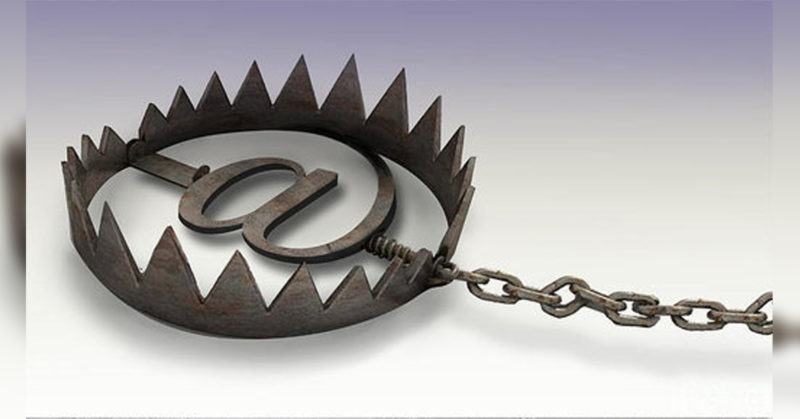 We live in an era of information explosion. Everything that is being fed to us in the name of information needs to be properly examined to prevent leakage of fake news. Social media networks have often been strategically used to develop ‘favorable’ public opinions for political purpose, and even political parties and organisations have been accused of using ‘troll armies’ to manipulate and/or suppress the ‘facts’. Misinformation and false information are spread online creating chaos and disturbance among people. We need to be wise to educate ourselves with the correct information, and learn to use the internet positively.
We live in an era of information explosion. Everything that is being fed to us in the name of information needs to be properly examined to prevent leakage of fake news. Social media networks have often been strategically used to develop ‘favorable’ public opinions for political purpose, and even political parties and organisations have been accused of using ‘troll armies’ to manipulate and/or suppress the ‘facts’. Misinformation and false information are spread online creating chaos and disturbance among people. We need to be wise to educate ourselves with the correct information, and learn to use the internet positively.
The Internet Trap
There is a well-liked saying: “Do not believe everything you hear, and entirely believe solely 1/2 what you see”. In the time of internet when information, misinformation, and disinformation compete against each other every second, we have to be very careful what we are letting in our head and heart.
Seeing and believing are two different perspectives of the human mind. Seeing means visualization of eyes. It explains the slideshows of images and the message that the brain wants to convey with the help of pictures. According to G. Sarcone, “Our brain……. transforms energy into color; links distances, movement and form to create reality in 3D; interprets visual stimuli and compares them to memories and sometimes, it makes mistakes!”. But then there is a different perspective of believing, it is the art of understanding our instincts. Instincts convey messages to our mind whether we should believe any precise sort of activities or not.
Beliefs are something which we accept with or without any proof. The art of accepting anything as truth is belief. To belief is to trust and to trust is to accept the truth. Believing is the mind game of instincts, to have a validation of our instincts which is also known as the 6th sense. Seeing and believing are two simultaneously used and interlinked words, and thus seeing and believing facts on the internet is the perfect analogy. What to believe and what not to believe on the facts found on the internet is a key challenge in today’s society. Finance is the lifeline of enterprise, so is the internet to today’s society. There is no doubt on the fact that the introduction of the internet was a boon to the society. It not only provides knowledge or first-hand information but also played an important role in bringing and developing changes in the society. The society we live in now is not the same as before. The increasing use of the internet has to be seen as a double-edged weapon. As such, we have to be mindful notto believe everything we see on the internet. T I am reminded of the incident where two young boys were lynched in Assam by a group of villagers. The incident was sparked by fake information circulated in the Whatsapp that child kidnappers were in the region.
False information online is also being widely used in political campaigns and India is one of the worst countries when it comes to this. The combination of uninformed large number of internet users in the country regarding fake news and existence of end-to-end encrypted messengers and social media has only made things easier for spreading propaganda. Lately, there have emerged a few fact checking portals which are constantly busting fake news like Alt News, but they are far less in number compared to the fake news machineries.
Misinformation and false information are also spread to create chaos and disturbance among people, and thus, the most important question here is how to stop these. The source of such news and information, ironically, is impossible to know and are actually a part of grapevine communication. The important fact here is the users of internet, in India in particular, often have learned using internet recently and are not aware of such ongoing fake circulations and problematically, it actually depends on the users of internet and the way they perceive these information, and react to it. So, the best way to react to these situations is to act deaf and dumb. Once we adapt the habit of not reacting to these news, we will no longer be affected by such information. Another possible way is to create awareness of seeing and believing tactics to the users by the known educated users. Once we develop the habit of making the unaware group aware of such false information, then definitely the situation can become better, but for that to happen, a lot of educated and people who are aware need to volunteer to counter the false information present online.
Degree of Thought is a weekly community column initiated by Tetso College in partnership with The Morung Express. Degree of Thought will delve into the social, cultural, political and educational issues around us. The views expressed here do not reflect the opinion of the institution. Tetso College is a NAAC Accredited UGC recognised Commerce and Arts College. The editors are Dr Hewasa Lorin, Dr. Aniruddha Babar, Dr. Pfokrelo Kapesa, Rinsit B Sareo, Meren Lemtur and Kvulo Lorin.
For feedback or comments please email: dot@tetsocollege.org

